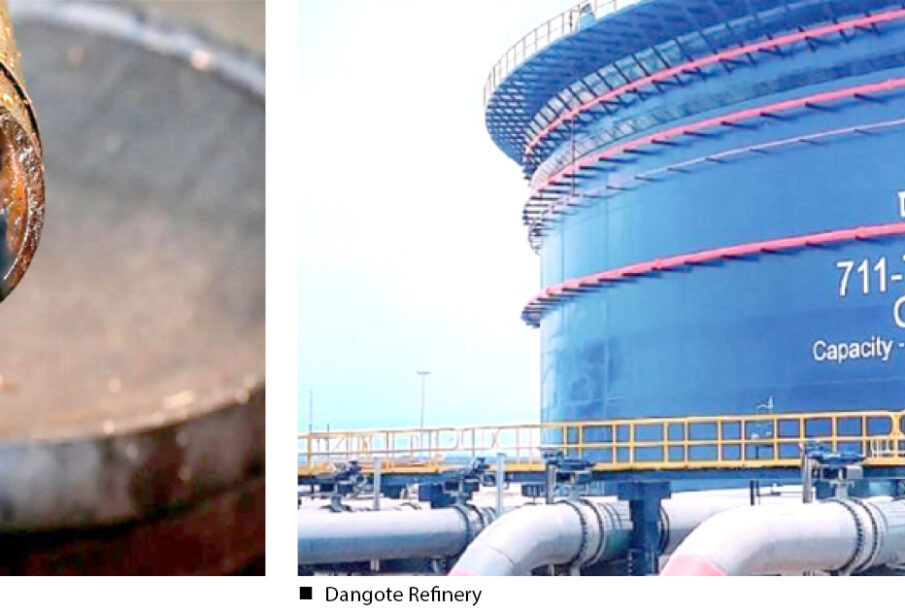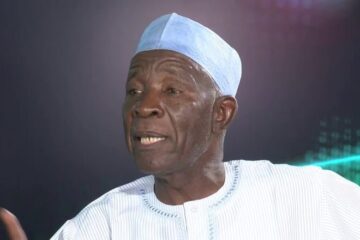
Experts and independent marketers on Wednesday welcomed the reinstatement of the naira-for-crude policy, saying it should be permanent as it would strengthen the naira and enhance energy security.
The federal government, through the Ministry of Finance, said the naira-for-crude deal between the government and local refiners, including Dangote Refinery, remained in effect.
This is just as a new report indicated that the decision of the Nigerian National Petroleum Company Limited (NNPCL) to suspend crude supply to the Dangote Refinery and others affected the output of the Organisation of the Petroleum Exporting Countries (OPEC) in March.
Yesterday, the Technical Sub-Committee on the Crude and Refined Product Sales in Naira initiative convened an update meeting to review progress and address ongoing implementation matters.
In a statement made available on X (formerly Twitter) of the Federal Ministry of Finance, the stakeholders at the meeting reaffirmed the government’s continued commitment to the full implementation of this strategic initiative, as directed by the Federal Executive Council (FEC).
It read: “Thus, the Crude and Refined Product Sales in Naira initiative is not a temporary or time-bound intervention, but a key policy directive designed to support sustainable local refining, bolster energy security, and reduce reliance on foreign exchange in the domestic petroleum market.
“As with any major policy shift, the Committee acknowledges that implementation challenges may arise from time to time. However, such issues are being actively addressed through coordinated efforts among all parties.
The initiative remains in effect and will continue for as long as it aligns with the public interest and supports national economic objectives.”
group chief executive officer, nigerian national petroleum company (nnpc) limited, bayo ojulari
group chief executive officer, nigerian national petroleum company (nnpc) limited, bayo ojulari
The journey
On March 13, Daily Trust reported that Dangote Refinery, Africa’s largest oil refinery, was reportedly considering increasing its crude oil imports from Angola and Algeria as discussions continue over the naira-for-crude arrangement with the Nigerian government.
Five days later, the Refinery suspended the sale of petroleum products to the domestic market in naira, following the failure of the federal government to renew the crude-for-naira deal the company had with NNPC Limited.
The refinery in a statement said: “We wish to inform you that Dangote Petroleum Refinery has temporarily halted the sale of petroleum products in naira.
“This decision is necessary to avoid a mismatch between our sales proceeds and our crude oil purchase obligations, which are currently denominated in U.S. dollars.
“To date, our sales of petroleum products in naira have exceeded the value of naira-denominated crude we have received. As a result, we must temporarily adjust our sales currency to align with our crude procurement currency.”
In the midst of the controversy over the policy, the Nigerian National Petroleum Company Limited (NNPCL) issued clarification on the status of the policy, saying the deal was for a period of six months.
Chief spokesperson of the NNPCL, Olufemi Shoneye said, “To clarify, the contract for the sale of crude oil in naira was structured as a six-month agreement, subject to availability, and expires at the end of March 2025.
“Discussions are currently ongoing towards emplacing a new contract. Under this arrangement, NNPCL has made over 48 million barrels of crude oil available to Dangote Refinery since October 2024. In aggregate, NNPCL has made over 84 million barrels of crude oil available to the Refinery since its commencement of operations in 2023.
“NNPC Limited remains committed to supplying crude oil for local refining based on mutually agreed terms and conditions…”
With the FG reinstating the policy, Daily Trust reports that expectations are high among Nigerians over the impact of the policy in reducing the price of premium motor spirit (PMS) otherwise known as petroleum which costs about N1000 at the moment.
It would be recalled that a litre of PMS sold below N900 in some areas when the naira-for-crude was in place.
As soon as Dangote announced the stoppage of sale of products in naira, the price went up as the exchange rate also skyrocketed amidst the rising fuel imports.
Daily Trust reports that the implication of Dangote selling its product in naira was that fuel price would now be determined by market forces in the international market.
The Independent Petroleum Marketers’ Association of Nigeria (IPMAN) which initially decried the failure of the naira-for-crude deal expressed relief yesterday following the announcement from the federal government.
Its president, Abubakar Maigandi, in a chat with our correspondent commended President Bola Ahmed Tinubu for listening to the cries of the common man, saying the policy would benefit the masses more.
He said the federal government should ignore the opposition from a segment of the market, saying those opposing it are in the minority compared to the majority of the masses that the policy would benefit.
Maigandi said, “For us at IPMAN, we are very happy with the recent development and we thank President Tinubu for this. I am saying that the naira-for-crude policy is good because if we continue to import, we are more or less selling our jobs outside the country when we have a lot of people that are looking for job. This policy is going to benefit the Nigerian masses.”
He expressed confidence that once the policy is fully reinstated, the price of petrol would come down.
However, some major marketers are indifferent about the naira-for-crude policy. They believe crude oil is an international product and as such it should be priced in dollars.
Recently, the petroleum marketers under the umbrella of Depot and Petroleum Products Marketers Association of Nigeria (DAPPMAN) said the naira-for-crude oil policy poses “significant risks that could affect Nigeria’s foreign exchange stability and deter Foreign Direct Investment (FDI).”
Executive Secretary of the association, Olufemi Adewole, who spoke in Lagos, noted that crude oil transactions are traditionally carried out in U.S. dollars due to its stability and global acceptability.
He cautioned that failure to align with this international standard could isolate Nigeria from global markets, diminishing trade opportunities and discouraging investment inflows.
Adewole also warned that naira-for-crude transactions could place an unsustainable burden on Nigeria’s foreign exchange reserves.
He argued that the Central Bank of Nigeria (CBN) might find it extremely difficult to maintain currency stability amid insufficient dollar inflows, leading to additional economic strain.
“It is almost inevitable that implementing this policy could further deplete Nigeria’s foreign exchange reserves. The CBN may find it increasingly difficult to stabilise the naira due to inadequate dollar inflows. Given that oil transactions have historically been a primary source of foreign exchange, disrupting this mechanism will likely intensify economic pressures.
“The global oil market operates in U.S. dollars due to its stability. Continuing the policy could alienate trade partners and investors who rely on the predictability of the dollar,” he stated.
Some of the major marketers who spoke with our correspondent yesterday called for more clarity on the naira-for-crude policy.
“To me it needs more clarity because if we are selling crude to Dangote in naira, which crude are we going to sell to generate the dollars that we need to finance imports,” a major marketer said yesterday.
Another marketer who spoke on the condition of anonymity said, “It is one thing to make the announcement and it is another thing for the policy to work. I am saying this because we must also look at the larger implication of this policy in terms of earning the foreign exchange to keep the economy running.
“The crude oil is an international product and it is priced in dollars. Don’t forget also that Nigeria has some crude oil forward contracts which we are servicing. We must think of how this would disrupt the entire value chain.”
However, Omowumi Iledare, Emeritus Professor of Petroleum Economics told Daily Trust that selling crude in naira is the best for Nigeria to stabilise the foreign exchange market, strengthen the naira and reduce PMS price for Nigerians, advising that the policy should be permanent.
“The more you price it in naira, its discipline and transparency will reduce the pressure that exchange rate volatility will bring to the price of petroleum products here in Nigeria and even in the entire West African coast,” he said.
He described the move by the federal government as “a good and excellent idea,” adding that economic theory encourages all factors of production to be paid using the local currency.
Iledare said, “If anybody is producing anything in Nigeria and people are buying in Nigeria, the raw materials that are sourced from Nigeria should be in naira and that actually will expand the economy because any input that we generate in Nigeria for production, interest in Naira will grow our economy faster than if you are charging in dollars, it’s going to be the same thing as charging school fees in dollars and paying teachers in naira. Or you are charging school fees in naira and paying professors in dollars, how much naira are you going to charge for school fees?
“Finally there is a precedent, China and India did it and they were successful and there is an international economic theory that supports it, encouraging all factors of production to be paid for using local currency and experts’ opinion also supports it and I’m happy that the government is doing it and should make it permanent because for many years the US did not allow any private sector to export oil and gas for energy security reasons, now they are doing it because they have become more self-sufficient.”
Also speaking, an independent petroleum marketer, Akinrinade Akinade, welcomed the policy, saying it would reduce fuel prices.
He said, “It goes without saying that the prices of PMS and others will come down. The reason we experienced increase in recent times is because of the absence of the naira-for-crude. So what this means is that the price of PMS will no longer be dollarised.”
He advised the federal government to ensure that the policy works. “Government must demonstrate the will to make it work. They must follow it up and we hope this is going to work this time around,” he added.
There was no immediate comment from Dangote Refinery. Chief spokesperson of the Dangote Group, Mr. Tony Chiejina did not respond to Daily Trust’s request for comments.
Meanwhile, the decision of the NNPCL to suspend crude supply to the Dangote and other refineries affected the output of the Organisation of the Petroleum Exporting Countries in March, this is according to a Reuters survey which found that OPEC oil output fell in March as Nigeria curbed deliveries to domestic refineries.
In March, supply from Nigeria, Iran, and Venezuela fell by 50,000 bpd each, the survey found.
Nigerian supply was said to have declined “due to reduced deliveries to the Dangote refinery, offsetting higher exports.” Reuters stated that Nigeria was pumping slightly above its OPEC quota.
Nigeria was said to have recorded the largest cut as OPEC reduced its crude oil production for March to an average of 27.43 million barrels per day—a reduction of 110,000 bpd from the prior month.
According to the survey, Nigeria saw the largest decrease in production, by 50,000 bpd, to an average of 1.5 million bpd.
Chief spokesperson of the NNPCL, Olufemi Shoneye did not respond to our correspondent’s enquiry as at press time.











